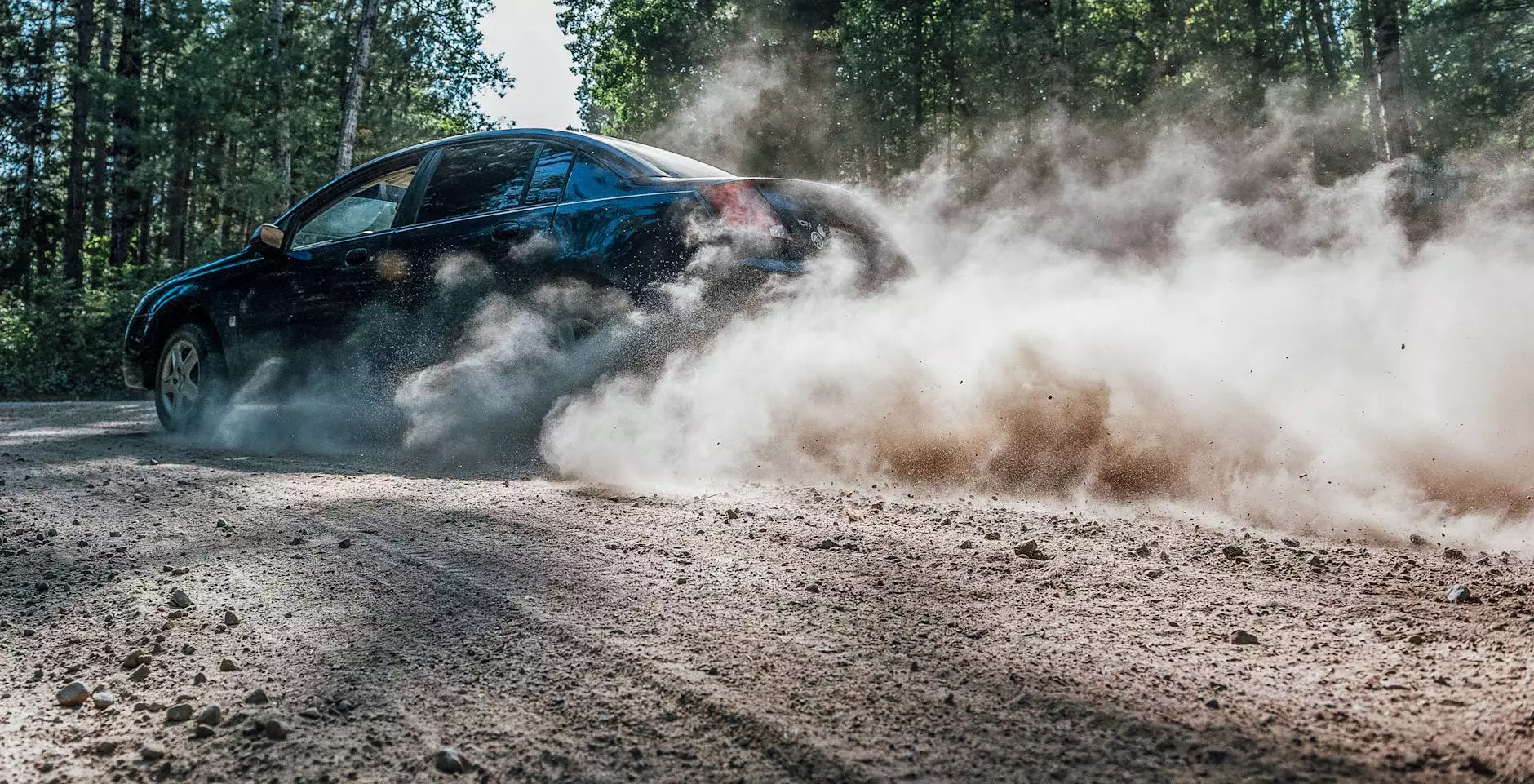Jeep Wheels and Tires: Enhance Your Off-Road Experience

When it comes to off-roading, having the right equipment is paramount to ensure not only a thrilling adventure but also safety and performance. Among the essential components that can significantly affect your Jeep's off-road capability are the Jeep wheels and tires. In this comprehensive guide, we will delve into everything you need to know about choosing, maintaining, and upgrading your Jeep wheels and tires.
The Importance of Quality Wheels and Tires
Your Jeep's wheels and tires are its sole contact with the ground, making them critical for handling, stability, and overall performance. Whether you're navigating rocky terrains, muddy trails, or sandy dunes, the right setup can make or break your off-road experience. Here’s why investing in quality wheels and tires is crucial:
- Traction: Quality tires provide better grip on various terrains.
- Durability: High-quality wheels and tires are built to withstand harsh conditions.
- Handling: Improved handling leads to a responsive driving experience.
- Comfort: Specialized tires reduce vibrations, ensuring a smoother ride.
Understanding Tire Types for Off-Roading
One of the first considerations when choosing Jeep wheels and tires is the type of tire that best suits your off-roading needs. Here’s a breakdown of the most common types:
1. All-Terrain Tires
All-terrain tires are designed to perform well on a variety of surfaces, making them an excellent choice for Jeep owners who often transition between highway driving and off-road adventures. They provide a good balance of traction, handling, and comfort.
2. Mud Terrain Tires
If you frequently tackle muddy and slippery conditions, mud terrain tires are your best bet. These tires have deep treads and aggressive patterns that allow them to dig into soft surfaces, providing superior grip.
3. Rock Crawling Tires
For those who enjoy extreme off-roading, rock crawling tires are ideal. They feature a larger diameter, thicker sidewalls, and more aggressive tread patterns to handle rugged terrains filled with rocks and boulders.
Selecting the Right Wheel Size
The size of your Jeep wheels can significantly impact performance, aesthetics, and the overall driving experience. Here are some key considerations in choosing the right wheel size:
1. Fitment
Ensure the wheels are compatible with your Jeep's specifications. Consider factors such as bolt pattern, offset, and center bore.
2. Tire Size Compatibility
When choosing Jeep wheels, make sure they can accommodate the tires you plan to use. Check the manufacturer’s recommendations for tire size relative to your wheel size.
3. Weight Ratings
Different wheel sizes come with different weight ratings. Choose a wheel that can handle the load you plan to carry on off-road adventures.
Popular Wheel Brands for Jeep Owners
When shopping for wheels, brand reputation can significantly influence your choice. Here are some popular wheel brands that Jeep owners trust:
- Method Race Wheels: Known for their lightweight yet durable design.
- American Racing: Offers a variety of styles and sizes tailored for performance.
- Raceline Wheels: A leader in off-road wheels with various innovative designs.
- Cragar Wheels: Renowned for their high-quality steel wheels ideal for rugged use.
Choosing the Right Jeep Tires
Once you have selected the perfect wheels, the next step is to choose tires that complement your off-road driving style. Here’s how to choose wisely:
1. Assess Your Driving Style
Are you a casual off-roader or a hardcore enthusiast? Your driving style greatly influences the type of tires you need. For instance, occasional trail riders can benefit from all-terrain tires, while serious off-roaders may prefer mud terrain or rock crawling setups.
2. Understand Tread Patterns
The tread pattern of your tires affects traction and handling. Look for tires with aggressive treads if you're venturing into challenging terrains. Conversely, smoother treads work well for on-road driving.
3. Consider Seasonal Changes
In regions with significant seasonal changes, it may be beneficial to invest in seasonal tires. All-terrain tires generally perform well year-round, but having a set of winter tires can enhance safety during cold months.
Installation and Maintenance Tips
After selecting your wheels and tires, proper installation and maintenance are essential for performance longevity:
1. Professional Installation
It's highly recommended to have your tires and wheels installed by professionals. They will ensure the correct alignment and balance, preventing undue wear and enhancing safety.
2. Regular Inspections
Regularly check your tires for wear and tear. Look for any cracks, bulges, or uneven wear patterns. Monitoring your tires can help catch issues before they become serious problems.
3. Rotate Your Tires
Tire rotation should be done every 5,000 to 7,500 miles, or as recommended by your manufacturer. This practice promotes even wear and prolongs the life of your tires.
4. Maintain Proper Inflation
Ensure your tires are inflated to the manufacturer's recommended PSI. Proper tire pressure maximizes performance, fuel efficiency, and safety.
Upgrading Your Jeep Wheels and Tires: A Worthwhile Investment
Upgrading to higher quality wheels and tires can transform your off-roading experience dramatically. The right setup not only enhances performance but also improves the aesthetic appeal of your Jeep.
1. Improved Performance
High-quality wheels and tires can greatly enhance your Jeep's performance. Whether you want to tackle steep hills, navigate through mud, or conquer rocky paths, the right combinations will give you the edge.
2. Enhanced Safety
Good tires provide better traction, which is crucial for safe driving in challenging conditions. Investing in quality wheels and tires minimizes the risk of blowouts and improves your ability to maintain control in precarious situations.
3. Style and Customization
New wheels can dramatically change the look of your Jeep. With a plethora of styles, sizes, and finishes available, you have endless opportunities to customize your ride and showcase your personality.
Conclusion
In conclusion, selecting the right Jeep wheels and tires is a fundamental step in ensuring that you get the most out of your off-road adventures. From understanding different tire types to making informed decisions about wheel size and brand, every choice matters.
Always prioritize quality for safety and performance, and don't hesitate to consult with professionals when it comes to installation and maintenance. The road—whether paved or unpaved—awaits! Gear up and enjoy your journey with confidence!
Frequently Asked Questions (FAQs)
1. How often should I replace my Jeep tires?
Most tires should be replaced every 40,000 to 60,000 miles, but it depends on the type of tire and the conditions in which they are used. Regular inspections will help determine tire health.
2. Can I mix different tire brands on my Jeep?
It is generally not recommended to mix tire brands and models on the same axle, as this can lead to uneven wear and handling issues. Stick to a matched set for best results.
3. What is the best tire pressure for off-roading?
Optimal tire pressure depends on the terrain. Generally, lower pressure (12-15 PSI) can help increase traction on soft surfaces, while higher pressure is suitable for hard-packed trails. Always consult your vehicle's owner manual for specifics.
4. Do larger tires affect my Jeep's performance?
Larger tires can improve ground clearance and traction but may affect acceleration and fuel economy. It's essential to find the right balance based on your off-road needs.
For more information on Jeep wheels and tires, visit offroad-zone.com.









